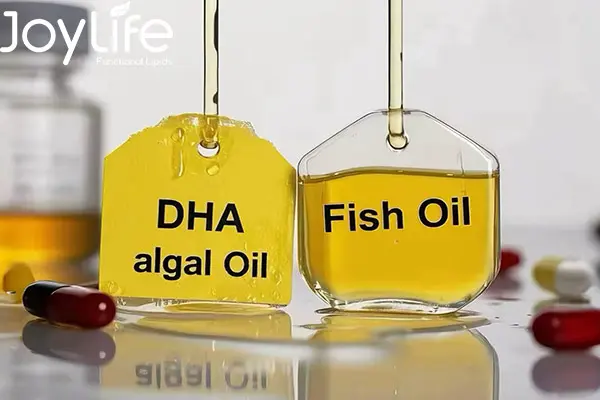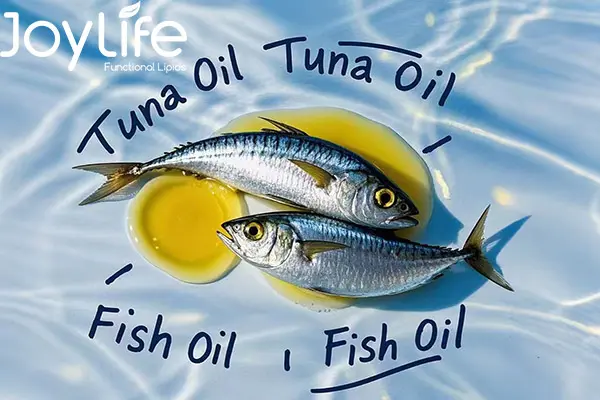



What's the difference between Krill Oil and Fish Oil, how to choose them?
Both krill oil and fish oil are popular dietary supplements rich in omega-3 fatty acids, particularly EPA (eicosapentaenoic acid) and DHA (docosahexaenoic acid). However, they differ in their sources, composition, bioavailability, and potential health benefits. Here's a comprehensive comparison:
Krill Oil:
Derived from tiny, shrimp-like crustaceans called krill.
Sourced from the cold waters of the Antarctic Ocean.
Considered more sustainable due to the large biomass of krill.
Fish Oil:
Extracted from the tissues of fatty fish like salmon, mackerel, sardines, and anchovies.
Sourced from various oceans and fisheries worldwide.
Sustainability depends on the fishing practices and species.
Krill Oil:
Contains EPA and DHA in phospholipid form, which is believed to be more easily absorbed by the body.
Typically has a lower concentration of omega-3s per gram compared to fish oil.
Fish Oil:
Contains EPA and DHA in triglyceride or ethyl ester form.
Generally provides a higher concentration of omega-3s per gram.
Krill Oil:
The phospholipid structure of omega-3s in krill oil may enhance absorption and utilization by the body.
Some studies suggest krill oil is more effective at increasing omega-3 levels in the blood compared to fish oil.
Fish Oil:
While effective, the triglyceride or ethyl ester forms may be less bioavailable than the phospholipid form in krill oil.
Absorption can be improved when taken with a meal containing fats.
Krill Oil:
Naturally contains astaxanthin, a potent antioxidant that protects the oil from oxidation and provides additional health benefits.
Contains choline, which supports brain health and liver function.
Fish Oil:
Does not contain astaxanthin unless added artificially.
May contain small amounts of vitamins A and D, depending on the source (e.g., cod liver oil).
Krill Oil:
Krill are abundant in the Antarctic, and harvesting is regulated by the Commission for the Conservation of Antarctic Marine Living Resources (CCAMLR).
Considered more eco-friendly due to the large biomass and lower risk of overfishing.
Fish Oil:
Sustainability varies depending on the fish species and fishing practices.
Look for certifications like MSC (Marine Stewardship Council) to ensure sustainable sourcing.
Krill Oil:
Less likely to cause a fishy aftertaste or burps due to its phospholipid structure.
Often preferred by those sensitive to the taste of fish oil.
Fish Oil:
May cause a fishy aftertaste or burps, especially with lower-quality products.
Enteric-coated capsules can help reduce this issue.
Krill Oil:
Generally more expensive than fish oil due to the extraction process and lower omega-3 concentration per serving.
Fish Oil:
More affordable and widely available.
Both krill oil and fish oil provide similar health benefits due to their omega-3 content, including:
Supporting heart health.
Reducing inflammation.
Improving brain function and mental health.
Promoting joint and eye health.
However, krill oil’s phospholipid structure and astaxanthin content may offer additional advantages, such as:
Enhanced absorption.
Better antioxidant protection.
Reduced oxidative stress.
1. Source:
2. Omega-3 Content:
3. Bioavailability:
4. Additional Nutrients:
5. Sustainability:
6. Taste and Aftertaste:
7. Cost:
8. Health Benefits:
Choose Krill Oil if:
You want better absorption and bioavailability.
You prefer a supplement with added antioxidants (astaxanthin).
You are sensitive to fishy aftertastes.
You prioritize sustainability.
Choose Fish Oil if:
You want a more affordable option with higher omega-3 concentration.
You don’t mind the potential for fishy aftertaste.
You are looking for a widely available supplement.
Both are excellent sources of omega-3s, so the choice depends on your budget, preferences, and health goals! Always consult a healthcare professional before starting any supplement.
Comparison Table:
Aspect
Krill Oil
Fish Oil
Source
Antarctic krill
Fatty fish (salmon, mackerel, etc.)
Omega-3 Form
Phospholipids
Triglycerides or ethyl esters
Bioavailability
Higher (easier absorption)
Lower (compared to krill oil)
Astaxanthin
Yes (natural antioxidant)
No (unless added)
Sustainability
More eco-friendly
Varies (depends on sourcing)
Taste/Aftertaste
Minimal fishy aftertaste
May cause fishy aftertaste
Cost
More expensive
More affordable
Best For
Those seeking better absorption, antioxidants, and no aftertaste
Budget-friendly, high omega-3 content
Which Should You Choose?